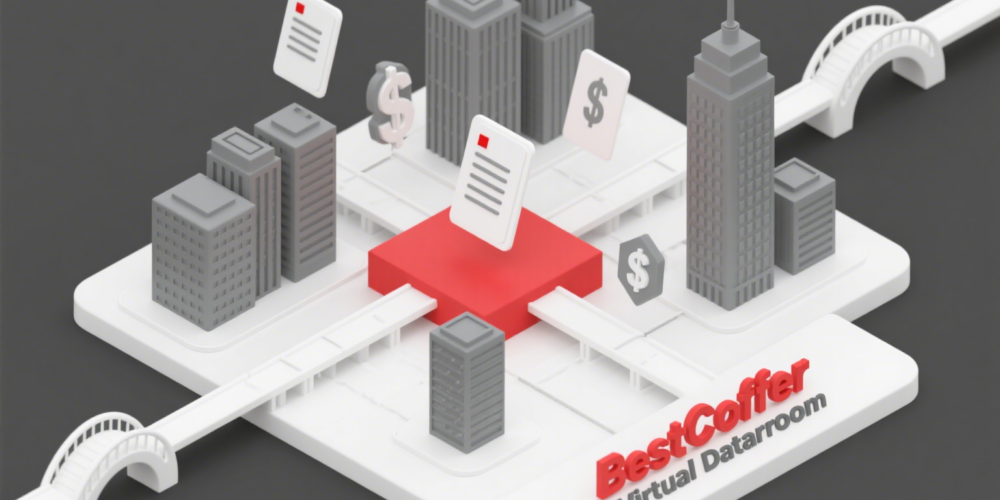
Table of Content
For businesses handling confidential data (e.g., M&A due diligence, fundraising, intellectual property sharing), understanding what is the service scope of virtual data room providers is critical to choosing a partner that aligns with their goals. Virtual data rooms (VDRs) are more than just “online file storage”; their service scope covers end-to-end solutions to protect data, streamline workflows, and ensure compliance. Below is a detailed breakdown of 6 core service areas that define reliable VDR providers.
Secure Data Storage & Access Control
The foundation of VDR services is secure data storage—this goes far beyond basic cloud storage. Top providers offer:
- End-to-end encryption: Data is encrypted both in transit (via TLS 1.3) and at rest (using AES-256, the industry gold standard), preventing unauthorized access even if data is intercepted.
- Multi-region backup: Servers are distributed across geographically separate locations to avoid data loss from regional outages (e.g., natural disasters or power failures).
- Granular access control: Administrators can set role-based permissions (e.g., “view-only” for external auditors, “edit” for internal teams) and restrict access to specific folders or documents. Some providers even offer “dynamic watermarking” (adding user-specific labels like names/IPs to documents) to deter unauthorized sharing.
For example, providers like Box VDR use redundant data centers in North America, Europe, and Asia to ensure 99.99% data availability. This level of security is non-negotiable for businesses handling sensitive information.
Compliance Management & Audit Trails
VDR providers simplify compliance with global and industry-specific regulations—a key part of their service scope. Core offerings include:
- Regulatory alignment: Pre-built templates and tools to meet standards like GDPR (EU), CCPA (California), HIPAA (U.S. healthcare), and ISO 27001 (information security). For instance, GDPR-compliant VDRs let users delete data on request (per “right to erasure”) and generate data processing records.
- Real-time audit trails: Detailed logs of all user actions, including document views, downloads, edits, and permission changes. These trails are tamper-proof and can be exported for audits or legal disputes.
- Compliance reporting: Automated reports that summarize data usage and access patterns, helping teams demonstrate compliance to regulators or stakeholders.
You can verify a provider’s compliance capabilities by checking their certifications on the ISO website—a trusted external resource for validating security standards.
Collaborative Workflow Tools
VDRs are designed to facilitate teamwork, even with external parties (e.g., investors, lawyers, or merger partners). Their collaboration services include:
- Real-time comments & annotations: Users can leave feedback directly on documents (without downloading them) to speed up reviews.
- Task management: Assign deadlines, track progress, and send reminders for critical tasks (e.g., “finalize due diligence docs by Friday”).
- Q&A functionality: A structured system for asking and answering questions about documents, ensuring transparency and reducing email clutter.
During an M&A deal, for example, a VDR’s collaboration tools can cut the time spent on document reviews by 30%—a significant efficiency gain for time-sensitive projects.
Customization & System Integration
To fit diverse business needs, VDR providers offer customization and integration services:
- Branding customization: Add company logos, colors, and welcome messages to the VDR interface, creating a consistent experience for external partners.
- API integration: Connect the VDR to existing business tools (e.g., Salesforce for CRM, Microsoft 365 for document editing, or Slack for team communication). This eliminates manual data transfer and keeps workflows seamless.
- Scalable storage: Adjust storage capacity based on needs—from 10GB for small fundraising projects to 100TB+ for large-scale mergers.
Small businesses might opt for a basic, pre-configured VDR, while enterprises may need custom integrations with their ERP systems—reliable providers cater to both.
24/7 Technical Support & Maintenance
Technical issues can disrupt critical workflows, so ongoing support is a core service:
- Round-the-clock availability: Support teams are accessible via phone, email, or live chat 24/7, even on weekends and holidays.
- Multilingual support: For global teams, providers offer support in languages like English, Spanish, Mandarin, and French.
- Proactive maintenance: Regular system updates (for security patches and feature improvements) are performed during low-traffic hours to avoid downtime.
A 2023 survey by G2 found that 82% of VDR users prioritize 24/7 support—proof of its importance in the service scope.
VDR built for M&A, Due Diligence, IPO etc.
bestCoffer offers the security and convenience you need.
Get in touch with bestCoffer to find out how we can support your business.